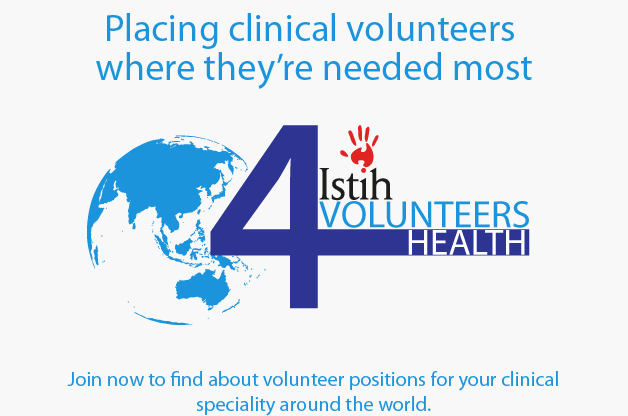For the past year, Australian and international doctors have been engaged in an intensive 18-month project to develop the specialty of emergency medicine in Myanmar. This program was initiated at the request of the Ministry of Health and senior Burmese doctors. It is designed to finish just ahead of the South East Asian Games in December 2013, an event that Myanmar will host. ISTIH is sponsoring a number of these doctors and is proud to support this initiative.
There are three phases proposed for the development of the specialty of emergency medicine in Myanmar, two of which are already underway. The first phase involves the training of an initial core group of local Myanmar clinicians in the specialty of emergency medicine. This inaugural group of 18 (the ‘M18’) is comprised of practicing clinicians already specialised in other areas of medicine. On satisfactory completion of the 18-month program they will become the first to receive the specially developed Diploma of Emergency Medicine (DipEM) qualification. The program is guided by fellows of the Australasian College for Emergency Medicine (FACEM) resident in Myanmar, and includes a series of short courses.
The first such course, the Myanmar Emergency Medicine Introductory Course (MEMIC) was presented in June 2012. So far Australian and international specialists have delivered a number of courses including Early Management of Severe Trauma Course (EMST/ATLS), the Emergency Life Support (ELS) course, the Major Incident Medical Management & Support (MIMMS) course and the ‘Teaching on the Run’ course. The last is a UWA-developed course presented by a team led by Dr Chris Kruk, an emergency physician and Director of Clinical Training at Fremantle Hospital.
Additional short courses in advanced paediatric life support, trauma care and toxicology are scheduled over the coming months. In April 2013 the M18 visited Hong Kong at the invitation of Dr James Kong, a locally based clinician engaged in the Myanmar emergency medicine development initiative, where they undertook intensive training in advanced cardiac life support under the tutelage of Dr Kong’s multinational team.
In line with the ‘train the trainer’ model, it is envisaged that the M18 will become the first generation of emergency medicine leaders in Myanmar who will pass on their DipEM skills to the next generation, who will then impart their training to future doctors, and so on, as part of a continuing chain of impact. Clinical teaching in the DipEM program is scheduled to finish in October 2013, allowing enough time for the graduates to contribute to preparations for the South East Asia Games in December.
Associate Professor Chris Curry, a Fremantle Hospital-based emergency physician and member of ISTIH’s Medical Advisory Committee, is the first Australian to have spent an extended period of time in Myanmar assisting with development of the DipEM program and teaching the M18. Prof Curry has made four visits to Myanmar in the past year since initial contact with staff at the University of Medicine 1, Yangon in February 2012. After playing a leading role in delivering the initial June 2012 MEMIC course, Prof Curry spent 7 weeks during December 2012-January 2013 serving as the first international emergency physician acting as ‘on the ground’ coordinator in Myanmar. Most of his time was spent in Yangon teaching the ten Yangon trainees and four of the M18 on secondment from Mandalay. He visited four trainees in the capital Nay Pyi Taw twice, and they in turn visited Yangon.
Another critical part of Prof Curry’s work in Myanmar involved facilitating support for further training in pre-hospital emergency services, in particular for the training of ambulance crews. This is currently a government priority as there is no ambulance service in Myanmar. Australian Volunteers International (AVI) has agreed to sponsor two emergency physicians and three ambulance trainers in aid of this. Such training is an important component of Phase three of the overall emergency medicine development program, which will build up infrastructure and capacity to deliver appropriate pre-hospital care. This phase is vital to support the delivery of in-hospital emergency medicine and is running concurrently with Phase one. It encompasses the training of ambulance crews, nurses, and junior doctors.
Dr Michael Augello followed Prof Curry as lead coordinator ‘on the ground’ in Myanmar, and will be succeeded in May by Dr Georgina Phillips, a Melbourne-based emergency physician. Both doctors were involved in the MEMIC course with Prof Curry. Dr Antony Chenhall will succeed Dr Phillips, ensuring the role will be filled until the end of Phase one and the conclusion of clinical skills training for the first cohort of DipEM candidates in October 2013. Prof Curry reports that the M18 are on target and making pleasing progress, with a number of potential future leaders for Myanmar’s nascent emergency medicine specialty among them.
ISTIH will continue to provide support to the international clinicians engaged in the development of emergency medicine in Myanmar, and will sponsor the upcoming Toxicology short course in September 2013.



